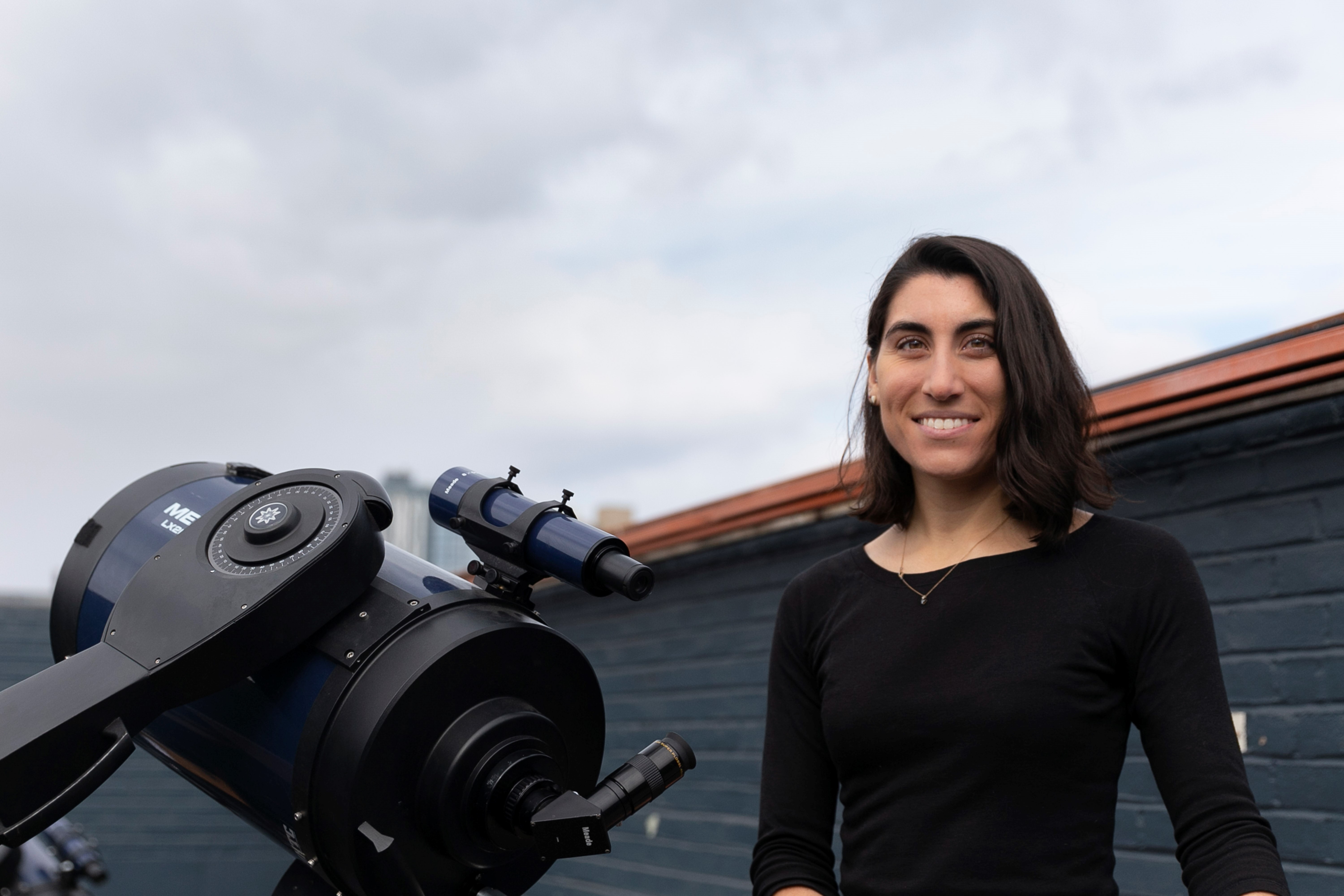Eyes on the Sky
Ashley Baker, GR’20, loves sharing the excitement of experimental astronomy.
Ashley Baker wants to find new planets. Her research, which focuses on designing and building instrumentation for astronomical telescopes, earned her a 51 Pegasi b Fellowship in Planetary Astronomy from the Heising-Simons Foundation, to begin this summer.
“One of the instruments I built was a prototype designed to make measurements of exoplanet atmospheres more efficient for ground-based telescopes,” says Baker, who completed a Ph.D. in physics and astronomy in May. “In my postdoc, I hope to continue making instruments and then use them to study exoplanets and their atmospheres.”
Established in 2017, the 51 Pegasi b Fellowship is awarded to exceptional postdoctoral scientists in planetary astronomy and is named for the first discovered exoplanet (a planet orbiting a star outside our solar system). Baker’s three-year fellowship begins July 1 at the California Institute of Technology. She has also received a Troesh Prize from CalTech, giving her a total of five years’ support for her work.
Ultimately, planetary astronomers are looking for molecules found in Earth’s atmosphere, such as oxygen, with the goal of finding habitable, Earth-like planets. Ground-based telescopes are just one of the methods used to find them. “By using optics—lenses, filters, and cameras—you can design how you want to manipulate the light that comes through your telescope,” Baker says. “With the special filter that I’m using, you can split light into different colors to learn about the actual molecules in an exoplanet’s atmosphere.”
Throughout her involvement with physics and astronomy, Baker has been committed to sharing the excitement of discovery with others. She became involved in public education as an undergraduate, and upon arriving at Penn she immediately joined the physics and astronomy department’s outreach group, which often partners with science institutions in Philadelphia.
“During the solar eclipse in 2017 we had telescopes out at David Rittenhouse Labs, and some of us went down to the Franklin Institute and talked to the crowd there,” she says. “That was one of the most memorable experiences because there were so many people who came out to watch and learn.”
Because of the COVID-19 pandemic this spring, students and staff left campus in March and community astronomy events were put on hold. Baker defended her dissertation via videoconference, which had an upside. “The nice thing about doing my defense virtually was that a lot of my family members—who are scattered all over the country—were able to join in and watch,” she says.
Baker was fortunate that, with coursework completed and no teaching duties, she was able to keep her work on track despite the pandemic. She appreciated the Department of Physics and Astronomy’s efforts to maintain a virtual community for its graduate students, providing opportunities to share research and continuing weekly social hours. “My work currently isn’t very hands-on, so I wasn’t as badly affected as some others—except for the social aspects that are impacting us all,” she says. “If this had happened two years earlier in my Ph.D., I would have needed to be in the lab, and it would have been a huge delay factor.”
Depending on the status of quarantine orders, Baker may need to begin her postdoctoral fellowship remotely before taking up residence in California. As for her longer-term plans, she remains undecided but is certain that public engagement will be part of her life as a scientist.
“I enjoy seeing how excited people get about planetary research,” she says. “It provides context for us about our existence—it’s directly relatable on a personal level. And it feels good to help people reach that ‘aha’ moment.”



